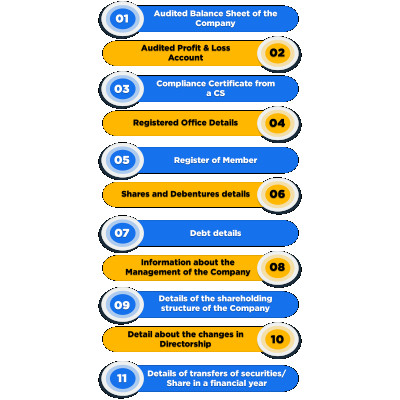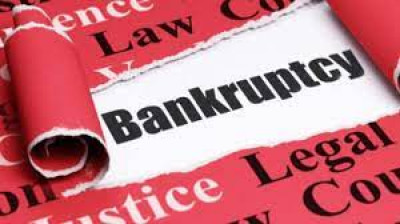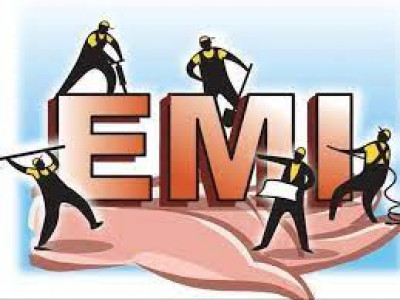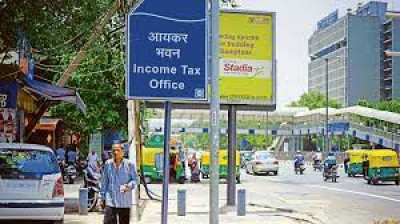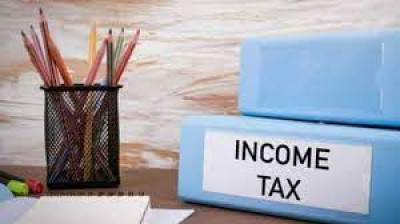Frequently Asked Question: Presumptive Taxation- Section 44AD, 44ADA, 44AE For Business And Professions
Q.1 What does the presumptive taxation system mean?
Ans. Under certain conditions, a person engaged in business or profession is required to keep regular books of account, according to Section 44AA of the Income-tax Act of 1961. To relieve small taxpayers of this time-consuming task, the Income-tax Act established the presumptive taxation scheme under sections 44AD, 44ADA, 44AE, 44BB, and 44BBB.
A person who uses the presumptive taxation scheme can declare income at a prescribed rate and, as a result, is relieved of the time-consuming task of maintaining books of account.
The Income-tax Act of 1961 established presumptive taxation methods for small taxpayers, as shown below.
- Section 44AD : Estimation of income for taxpayers [who are a resident individual, a resident Hindu undivided family, or a resident partnership firm (not a limited liability firm)] engaged in certain businesses subject to specific criteria.
- Section 44ADA: Estimation of professional income for assessees who are residents of India and working in a profession listed in section 44AA(1), subject to specified circumstances.
- Section44B: Taxation, subject to certain conditions, of shipping profits derived from non-resident persons in India.
- Section 44BB: Computation of income from activities related to exploring mineral oils of a non-resident person (maybe an Indian citizen or a foreign citizen), subject to certain conditions.
- Section 44BBA: Income computation for international airlines, subject to specific restrictions.
- Section 44BBB: Computation, subject to certain terms, of the revenues and profits of foreign firms engaged in civil construction.
Q.2 Who is eligible to take benefit of presumptive taxation scheme under Section 44AD's?
Answer: The following individuals are eligible to use Section 44AD's presumptive taxation method.
- Individual Resident
- Undivided Hindu Family
- Firm of Resident Partnership (not Limited Liability Partnership Firm).
In other words, a non-resident and anyone other than an individual, a HUF, or a partnership firm cannot participate in the plan (not Limited Liability Partnership Firm). Furthermore, this Scheme cannot be used by anyone who has claimed any deductions under sections 10A/10AA/10B/10BA or 80HH to 80RRB in the previous year.
Q.3 Which enterprises are not eligible for the presumptive taxation scheme under Section 44AD?
Answer: The section 44AD scheme is designed to provide relief to small taxpayers who are engaged in any business, with the exception of the following:
Section 44AE refers to the business of transporting, hiring, or leasing goods carriages.
- A person who is in the business of running an agency.
- A person who earns money through commissions or brokerage.
- Any company with a total revenue or turnover of more than two crore rupees.
Apart from the enterprises mentioned above, a person who engages in a profession as defined in section 44AA(1) is not eligible for the presumptive taxation plan under section 44AD.
Q.4 Can an insurance agent use Section 44AD's presumptive taxation scheme?
Ans. A person earning commission or brokerage income cannot use the presumptive taxation scheme of section 44AD. Insurance agents earn commissions and, as a result, cannot use the presumptive taxation scheme of section 44AD.
Q.5 Can a person engaged in a profession as defined in section 44AA(1) use the presumptive taxation scheme described in section 44AD?
Ans. A person engaged in any profession as defined in section 44AA(1) is not eligible to use the presumptive taxation scheme of section 44AD. However, according to Section 44ADA, he can opt for a presumptive taxation scheme and declare his presumptive income as being 50 percent of gross occupational receipts. The Presumptive Scheme under Section 44ADA is only available to resident assessees with total gross receipts of professions of less than fifty lakh rupees.
Q 6. Can a person whose total turnover or gross receipts for the year exceed Rs. 2,00,00,000 use Section 44AD's presumptive taxation scheme?
Answer: According to Section 44AD presumptive taxation scheme can be chosen by eligible persons if the total turnover or gross receipts from the business do not exceed the limit prescribed in section 44AB (i.e., Rs. 2,00,00,000). In other words, if a business's total sales or gross receipts exceed Rs. 2,00,00,000, the section 44AD plan cannot be used.
Q 7 What is the method of calculating taxable business income under ordinary provisions of the Income-tax Law, i.e., when a person does not use the presumptive taxation scheme of Section 44AD?
Answer: In general, according to the Income-tax Law, each person's taxable business income is computed as follows.
|
Particulars |
Amount |
|
Turnover or gross receipts from the business |
XXXXX |
|
Less : Expenses incurred in relation to earning of the income |
(XXXXX) |
|
Taxable Business Income |
XXXXX |
To compute taxable business income in the manner described above, taxpayers must keep books of account for the business, and income will be computed based on the information revealed in the books of account.
Q.8 How does a person adopt section 44AD's suspected taxation scheme calculate taxable business income?
Ans. When a person adopts the provisions of Article44AD, revenue is calculated on a presumptive basis, i.e. @ 8% of the eligible year's turnover or gross annual receipts. The income for a total turnover or gross receipts received by a check or draught account or the use of electronic clearing, or by such other mode as may be prescribed, shall be composed at a rate of 6 percent. In other words, if a person adopts the requirements of section 44AD, income will be determined at 8% /6 percent of turnover rather from the regular method stated in the previous FAQ (i.e., Turnover less Expense). If the real income is greater than 8%, a higher rate of income, i.e. more than 8%, can be stated.
Q 9: According to Section 44AD's presumptive taxation scheme, a taxpayer's income will be estimated at 8% /6 percent of the turnover or gross receipt; can the taxpayer claim any additional deductions from this income?
In accordance with the standard provisions of the law of income-taxation, taxable business income shall be calculated on the basis of the allowance for expenses deductible under the Act of Income-tax, or on the basis of the rejection of costs that are not deductible in accordance with the Act on income-tax.
When a person opts for the presumptive taxation system of Section 44AD, the definitive taxable incomes of business under the presumptive taxation system and no additional expenses shall be permitted or refused, and incomes calculated at the presumptive rate of 8 percent /6 percent, shall not be applicable under the income taxation law. The assessee, on the other hand, can claim a deduction under Chapter VI-A.
While a separate deduction for depreciation is not available when computing income under section 44AD, the written down value of any asset employed in the business shall be calculated as if depreciation under section 32 is claimed and actually granted.
Q.10 Is a person obligated to keep books of account in accordance with section 44AA if he uses the presumptive taxation scheme of section 44AD?
Answer: Section 44AA deals with provisions relating to a person engaged in business or profession maintaining books of account. Thus, a person who has a trade/company must keep his/her business/commerce account books under section 44AA provisions.
The provisions of Section 44AA related to the maintenance of account books shall not apply in the case of a person engaging in a business and choosing the alleged taxation scheme of Section 44AD. This means that a person is not required to keep the account books provided in Section 44AA for business covered under the presumptive taxation scheme in section44AD when adopting provisions of Section 44AD and declaring income @ 8 percent/6 percent of sales.
Q.11 Is a person obligated to pay advance tax on revenue from a business covered by section 44AD if he uses the presumptive taxation scheme of section 44AD?
Ans. Anyone who chooses the presumptive taxation plan under section 44AD must pay the entire amount of advance tax by March 15th of the previous year. If he does not pay the advance tax by the 15th of March of the preceding year, he will be subject to interest under sections 234B and 234C.
Note: Any advance tax paid on or before the 31st of March is also recognized as advance tax paid during the financial year ending on that day.
Q.12 What are the consequences if a person adopts the presumptive taxation scheme but then opts out in any of the next five years?
If an individual chooses a presumed tax system, he must also follow the same scheme for the next five years. If he did not, he will not be able to obtain a presumptive taxation scheme for the next 5 years. [For example, an assessee submits claims under section 44AD in the case of AY 2019-20 to be taxed presumptive. It also provides income on a presumptive financial scheme for AY 2020-21 and 2021-22. However, he did not choose the presumptive financial scheme for AY 2022-23. In this instance, he will be ineligible to use the presumptive taxation scheme for the next five years, from 2023-24 to 2027-28.]
He must keep and maintain books of account, and he is subject to tax audits if he opts out of the presumptive taxation arrangement under section 44AB of the AY. [If his total income surpasses the maximum amount exempt from taxation]
Q.13 Who is qualified to benefit from Section 44ADA's presumptive taxation scheme?
Ans. The presumptive taxation scheme of sections 44ADA can be used by a resident assessee who is an individual or a HUF and whose gross receipts do not exceed fifty lakh rupees in a fiscal year. The professions listed below are specific professions.
Q.14 How is taxable income computed in the case of a person using Section 44ADA's presumptive taxation scheme?
Ans. If a person follows the provisions of Section 44ADA, his or her income will be computed on a presumptive basis, i.e. at 50% of the total gross receipts of the profession. However, such a person can declare income greater than 50% of the time. In other words, when a person adopts Sections 44ADA, income is not calculated normally but is calculated at 50% of gross receipts.
Q.15: Can anyone who uses Section 44ADA's presumptive tax system claim any further deduction of expenses following a statement of profit @ 50 percent of gross revenues?
No, the person taking the presumptive taxation scheme is considered to have claimed all expenditure deductions. After declaration of profit @ 50 percent, any additional claim for deduction is not allowed. However, under chapter VI-A, the assessee may claim a deduction.
Q.16 Is a person required to pay advance tax on income from a profession covered by section 44ADA if he uses the presumptive taxation scheme of section 44ADA?
Ans. Anyone who chooses the presumptive taxation scheme under Section 44ADA is required to pay the entire amount of advance tax on or before March 15th of the previous year. If he fails to pay the advance tax by the 15th of March of the previous year, he must pay interest in accordance with sections 234B and 234C.
Note: Any advance tax paid on or before the 31st of March is also treated as advance tax paid during the fiscal year ending on that day.
Q.17 Is it necessary to keep books of account in accordance with section 44AA if a person uses the presumptive taxation scheme of section 44ADA?
Ans. If a person is engaged in a specified profession as defined in section 44AA(1) and chooses the presumptive taxation scheme of section 44ADA, the provision of section 44AA relating to bookkeeping will not apply. In other words, if a person opts for the provisions of Section 44ADA and declares income at 50% of gross receipts, he is not required to keep books of account for the specified profession.
Q.18 What provisions apply if a person chooses Section 44ADA's presumptive taxation scheme and declares his income from profession at a lower rate (i.e. less than 50%)?
Ans. A person can declare income at a lower rate (i.e. less than 50%), but if he does so and his income exceeds the maximum amount that is not chargeable to tax, he is required to keep books of account in accordance with Section 44AA and to have his accounts audited in accordance with Section 44AB.
Q.19 Who is the presumptive taxation scheme of Section 44AE intended for?
Ans. Section 44AE applies to anyone who owns no more than ten goods carriages at any time during the previous year and is in the business of plying, hiring, or leasing such goods carriages.
Q.20 Who is eligible to take advantage of Section 44AE's presumptive taxation scheme, and which businesses are eligible for Section 44AE's presumptive taxation scheme?
Ans. The provisions of Section 44AE apply to everyone (i.e., an individual, HUF, firm, company, etc.).
A person who is engaged in the business of plying, hiring, or leasing goods carriages and does not own more than ten goods vehicles at any time during the year may use the presumptive taxation scheme of sections 44AE.
Q.21 Can a person who owns more than ten goods vehicles use section 44AE's presumptive taxation scheme?
Ans. A person who is engaged in the business of plying, hiring, or leasing goods carriages and does not own more than ten goods vehicles at any time during the year may use the presumptive taxation scheme of sections 44AE.
The scheme's most important criterion is that no more than 10 goods vehicles may be owned at any time during the year. As a result, if a person owns more than ten goods vehicles at any time during the year, he is ineligible for this scheme.
Q.22 According to Section 44AE's presumptive taxation scheme, a taxpayer's income will be computed at the rate of Rs. 7,500 per goods vehicle per month or Rs. 1000 per tonne of gross vehicle weight per month, and the taxpayer will not be able to claim any additional benefits.
Ans. Under the normal provisions of the Income-tax Act, taxable business income is computed after deducting expenses that are deductible under the Income-tax Act of 1961 and disallowing expenses that are not deductible under the Income-tax Act of 1961.
In the case of a person who chooses the presumptive taxation scheme of Section 44AE, the provisions of allowances and disallowances under the Income-tax Act, 1961 will not apply, and income will be computed at the presumptive rate:
- Rs. 7,500 per month or part of a month for each goods carriage during which the assessee owns the goods vehicle in the previous year. A portion of a month would be considered a full month (not applicable from A.Y 2019-20) If the taxpayer's actual income exceeds the presumptive rate, the excess income can be declared if the taxpayer so desires.
- Rs. 7,500 per month or part of a month for each goods carriage (other than heavy goods vehicle) in the previous year / Rs. 1000 per tonne of gross vehicle weight per month or part of a month in the case of heavy goods vehicle, during which the goods vehicle is owned by the assessee, or actual amount earned, whichever is higher. A portion of the month would be treated as a full month.
Heavy goods vehicles are defined as any goods carriage vehicle with a gross vehicle weight greater than 12000 kilogrammes. Income computed at the presumptive rate specified above will be the final income, and no further deductions, including depreciation and unabsorbed depreciation, will be allowed under sections 30 to 38. However, in the case of a taxpayer, a deduction for remuneration and interest paid to partners can be claimed (computed as per the Income-tax Act,1961).
While calculating income under Section 44AE, a separate deduction for depreciation is not available; however, the written down value of any asset used in such business shall be calculated as if depreciation under Section 32 is claimed and allowed. The assessee can, however, claim a deduction under Chapter VIA.
23. Is a person required to keep books of account in accordance with section 44AA if he uses the presumptive taxation scheme of section 44AE?
Ans. Section 44AA of the Income-tax Act of 1961 contains provisions relating to the keeping of books of account by a person engaged in business or profession. A company/company member must therefore maintain his/her business account books as per Section 44AA.
If a person opts for section 44AE of the presumptive taxation scheme, the provisions of Section 44AA on account books shall not be applied. In other words, if a person follows the provisions of section 44AE and declares his income as follows:
- Rs. 7,500 per month or part of a month for each goods carriage in which the taxpayer owns the goods vehicle in the previous year. Part of the month would be taken as a complete month.
- Rs. 7,500 per month or portion of a month for each goods carriage (apart from heavy goods vehicle) in the previous year / Rs. 1000 per tonne of gross vehicle weight per month or part of a month in the case of heavy goods vehicle, during which the goods vehicle is owned by the taxpayer, or actual amount earned, whichever is higher. A portion of the month would be treated as a full month.
Then he is not required to keep books of accounts under Section 44AA in respect of business covered by Section 44AE's presumptive taxation scheme.
Q.24. Is it liable to pay advance tax on revenue from businesses according to section 44AE if a person takes the presumptive taxation system under 44AE?
Ans. There is no payment of advance tax concession in the case of a person who adopts the presumptive taxation scheme of section 44AE; thus, he will be responsible for paying advance tax even though he adopts the presumptive taxation scheme of section 44AE.
Q.25: What is the deadline for filing an income tax return by an individual who owns a business or practises a profession?
An individual who owns a business or practises a profession must file his or her income tax return on or before the 31st of July of each assessment year.
If he is subject to a tax audit, he can file his return at any time before the end of the fiscal year on September 30. These deadlines apply in the normal course, unless the Central Board of Direct Taxes announces a deadline extension (CBDT).
Q.26. When will a business person or professional face a tax audit?
In the case of a businessman, if his total business turnover exceeds Rs 1 crore, he is subject to an audit under Section 44AB of the Income-tax Act. If he is a professional, he is subject to a tax audit if his gross receipts exceed Rs 25 lakhs.
Q.27. Every year, I run a small business with an annual revenue of around 30 lakhs.
Do I need to maintain accounting records?
Yes. If your business turnover exceeds Rs 25 lakhs in any of the previous three years, you must keep books of accounts. Failure to do so may result in a Rs 25,000 fine.
Q.28. I've chosen the presumptive tax scheme. Should I continue to pay advance tax?
If you have chosen the presumptive tax scheme, you may not be required to pay advance tax every quarter, but you must ensure that you pay all advance taxes on or before March 15 of the following financial year. Furthermore, any taxes paid prior to March 31 will be considered advance taxes only.
Q.29. Can a person who chooses the presumptive tax scheme deduct any additional expenses from his gross income?
No. Once a person declares the prescribed percentage of his gross receipts or turnover as income, he cannot deduct any additional expenses.
Q.30. Is it necessary for a person providing income to keep books of accounts?
No, a person who chooses a presumptive income scheme under Section 44AD, 44ADA, or 44AE, for example, is not required to keep any books of accounts.
Q.31. If I feel it doesn't work well for me, could I opt out of the presumptive scheme?
You must follow this scheme for the next 5 years once you choose. If you choose 1 year over these five years, you will be unable to choose again the five years after the year you opted out. For example, an assise claim under Section 44AD for AY 2016-17 to be imposed on a presumptive basis. It offers revenue based on the presumptive taxation regime also for AY 2017-17 and 2018-19. He did not, however, opt for the presumptive tax system for AY 2019-20. In that case, the beneficiary of the presumptive tax scheme is not admissible for the next five years i.e. from AY 2020-21 to 2024-25.
Rajput Jain & Associates Associate will understand about your company's needs and assist you with presumptive taxation difficulties. We will also assist you in obtaining the necessary registrations to open a bank account in your company's name, thereby establishing the company's identity.
For any information/queries, you can contact us. For Contact:
Website- Click here
Email id- info@caindelhiindia.com


